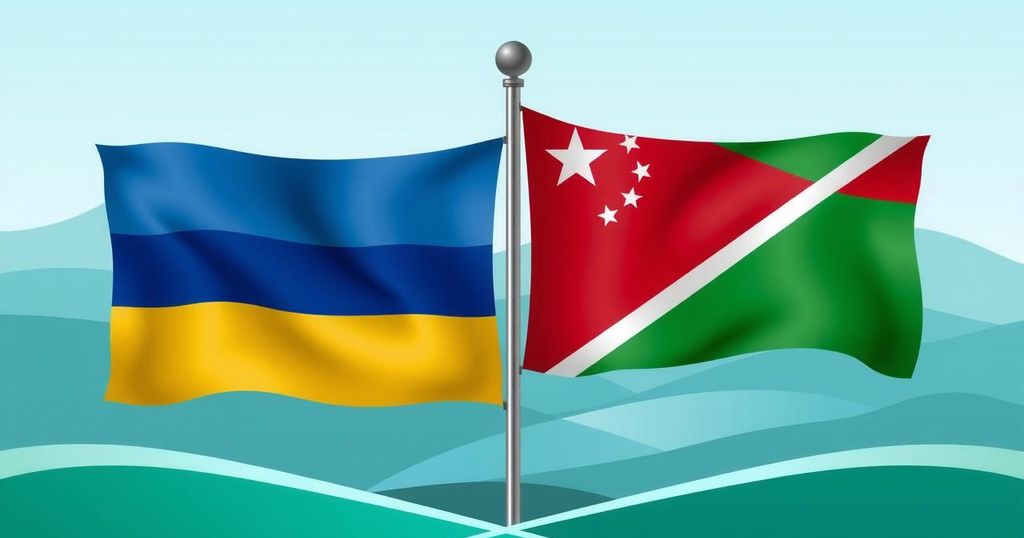On March 18, the DRC and Rwanda presidents met in Qatar to address the eastern Congo conflict involving the M23 rebel group. Despite M23’s absence, they affirmed a ceasefire commitment and the need for continued negotiations, while cautioning against the ramifications of EU sanctions that hindered peace talks. The humanitarian situation remains dire, with significant displacement and casualties reported.
On March 18, the presidents of the Democratic Republic of Congo (DRC) and Rwanda convened in Qatar to discuss the ongoing conflict in eastern Congo, which has been driven largely by the Rwandan-backed M23 rebel group. Despite the absence of M23 representatives, both leaders reaffirmed their commitment to an immediate and unconditional ceasefire, as stated in a joint declaration released post-meeting in Doha, mediated by Qatari Emir Tamim bin Hamad Al Thani.
This meeting coincided with anticipated direct peace talks in Angola, which had to be postponed after M23 withdrew due to sanctions imposed on some of its leaders by the European Union. The heads of state expressed a shared determination to further negotiations initiated in Doha, aiming to establish a stable peace framework.
Plans were laid for a peace summit on December 15, 2024, following a ceasefire agreement signed in Luanda earlier this year. However, tensions arose concerning the inclusion of M23 in the discussion, with Rwanda supportive of their involvement while the DRC opposed it.
The Angolan Foreign Affairs Ministry stated that the dialogue could not proceed due to unforeseen circumstances after M23 canceled their participation following the EU sanctions. The Congo River Alliance (AFC) voiced disappointment at international institutions, which they allege are undermining peace efforts and obstructing the necessary discussions for resolution.
M23 controls key areas in North and South Kivu provinces, known for their mineral wealth, crucial for technology manufacturing. Over 850,000 individuals have been displaced in South Kivu since the conflict’s escalation in January, while casualties exceeded 8,500 according to reports from Congolese authorities. The unrest, ongoing since 1998, persists despite the presence of UN peacekeeping forces, leading to fears of a broader regional conflict.
The meeting between Presidents Tshisekedi and Kagame highlighted the urgent need for dialogue and commitment to ceasefire in eastern Congo amid a complex conflict influenced by regional dynamics and international interventions. The absence of M23 in discussions remains a significant hurdle to achieving lasting peace. Continued instability has resulted in humanitarian crises, necessitating a cooperative approach among involved parties to address long-standing grievances and forge a path toward resolution.
Original Source: efe.com






